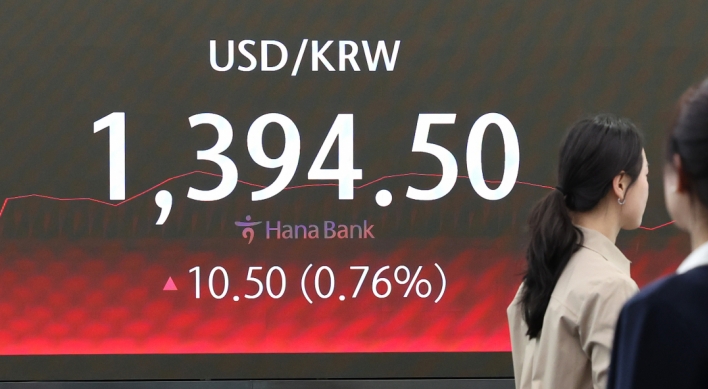South Koreans who wish to send money to their families in North Korea will be required to get government approval in advance under a revised law, Seoul’s Unification Ministry said Monday.
All remittances between the South and North, including investments or aid to the North from an overseas corporation set up by a South Korean citizen, will require government approval, according to the revised law on inter-Korean exchange and cooperation, aimed at increasing transparency of the cross-border exchanges.
So far, only payments for commercial transactions were subject to obtain government permission in advance, raising concerns that it was hard to track other kinds of cash flow into North Korea.
North Korean defectors who have settled in the South or members of families separated by the border after the 1950-53 Korean War have occasionally remitted money to their kin in the impoverished North through bank accounts in third countries such as China.
But under the new law taking effect in the second half of this year, South Koreans are obliged to get government approval before sending or passing on inheritance to their family in the North. There will be exceptions, however, for remittances of small amounts for basic living costs or medical costs of their kin in the North.
If a corporation established by a South Korean citizen in a third country plans to invest in the North, the South Korean proprietor will now have to report to the Seoul government in advance.
South Koreans planning to send goods purchased in third countries to the North will also have to attain government permission.
A South Korean Christian aid group recently sent flour, bought in China through a Chinese nongovernmental organization called Amity Foundation, to North Korea.
South Korean companies trading with entities in the North will also be required to register, under the new law.
“Between 700 and 800 companies are believed to have records of trade with the North so far, but only 580 have been confirmed so far in a survey conducted after the May 25 regulation (on inter-Korean exchanges) last year,” a ministry official said.
“The others have either stopped doing business in the North or have gone out of contact, making it hard for the government to keep track.”
The ministry plans to set up a state-funded agency to support inter-Korean nongovernmental exchanges at all times.
So far, the ministry has allocated financial aid to support inter-Korean exchange to selected non-profit organizations once or twice a year.
By Kim So-hyun (sophie@heraldcorp.com)
All remittances between the South and North, including investments or aid to the North from an overseas corporation set up by a South Korean citizen, will require government approval, according to the revised law on inter-Korean exchange and cooperation, aimed at increasing transparency of the cross-border exchanges.
So far, only payments for commercial transactions were subject to obtain government permission in advance, raising concerns that it was hard to track other kinds of cash flow into North Korea.
North Korean defectors who have settled in the South or members of families separated by the border after the 1950-53 Korean War have occasionally remitted money to their kin in the impoverished North through bank accounts in third countries such as China.
But under the new law taking effect in the second half of this year, South Koreans are obliged to get government approval before sending or passing on inheritance to their family in the North. There will be exceptions, however, for remittances of small amounts for basic living costs or medical costs of their kin in the North.
If a corporation established by a South Korean citizen in a third country plans to invest in the North, the South Korean proprietor will now have to report to the Seoul government in advance.
South Koreans planning to send goods purchased in third countries to the North will also have to attain government permission.
A South Korean Christian aid group recently sent flour, bought in China through a Chinese nongovernmental organization called Amity Foundation, to North Korea.
South Korean companies trading with entities in the North will also be required to register, under the new law.
“Between 700 and 800 companies are believed to have records of trade with the North so far, but only 580 have been confirmed so far in a survey conducted after the May 25 regulation (on inter-Korean exchanges) last year,” a ministry official said.
“The others have either stopped doing business in the North or have gone out of contact, making it hard for the government to keep track.”
The ministry plans to set up a state-funded agency to support inter-Korean nongovernmental exchanges at all times.
So far, the ministry has allocated financial aid to support inter-Korean exchange to selected non-profit organizations once or twice a year.
By Kim So-hyun (sophie@heraldcorp.com)








![[KH Explains] How should Korea adjust its trade defenses against Chinese EVs?](http://res.heraldm.com/phpwas/restmb_idxmake.php?idx=644&simg=/content/image/2024/04/15/20240415050562_0.jpg&u=20240415144419)










![[Today’s K-pop] Stray Kids to return soon: report](http://res.heraldm.com/phpwas/restmb_idxmake.php?idx=642&simg=/content/image/2024/04/16/20240416050713_0.jpg&u=)